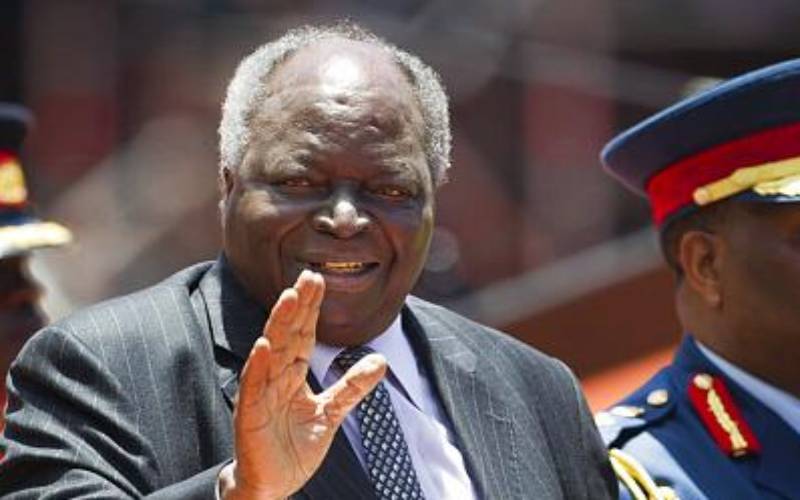
Much has been said and written about Emilio Mwai Kibaki. Kenya’s third president was many things to many people. More accolades have been sent his way than foibles, true to the African tradition of respecting the departed. Allow me not to have the last word on Kenya’s most self-effacing, visionary and purpose-driven CEO. Some have called him Kenya’s finest economist.
Now, I was of age when Kenyans, especially from my home county of Nyeri, hungered for Kibaki's presidency. They opined that the man from Othaya had a magic touch that would turn around an economy in ruins. Right from 1992 when he formed the Democratic Party (DP), many saw hope in him.